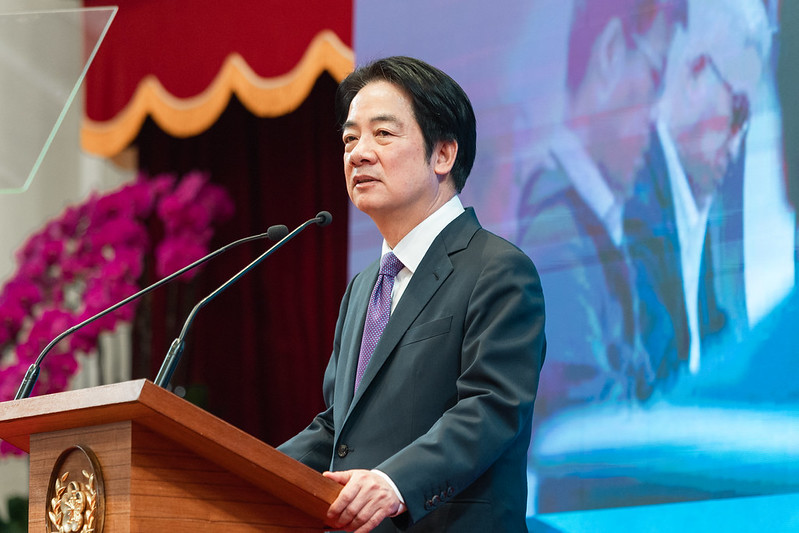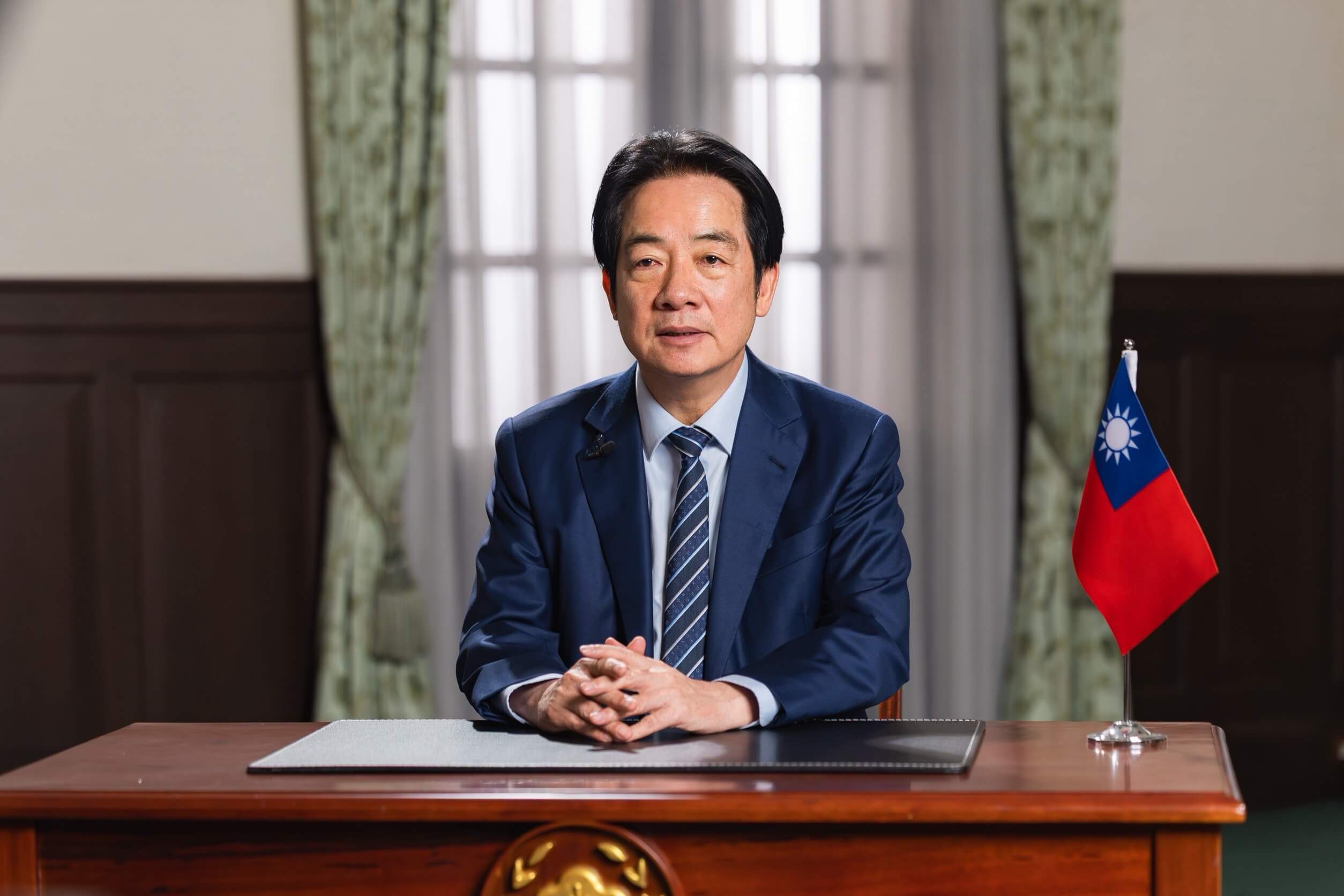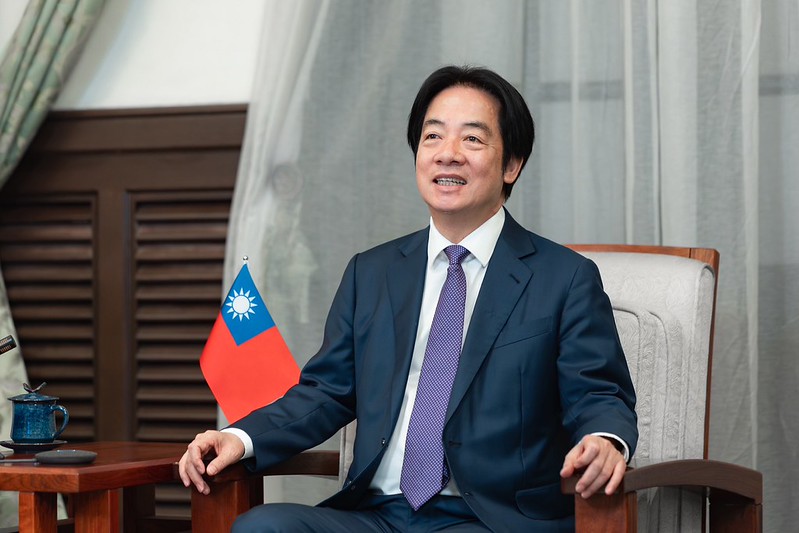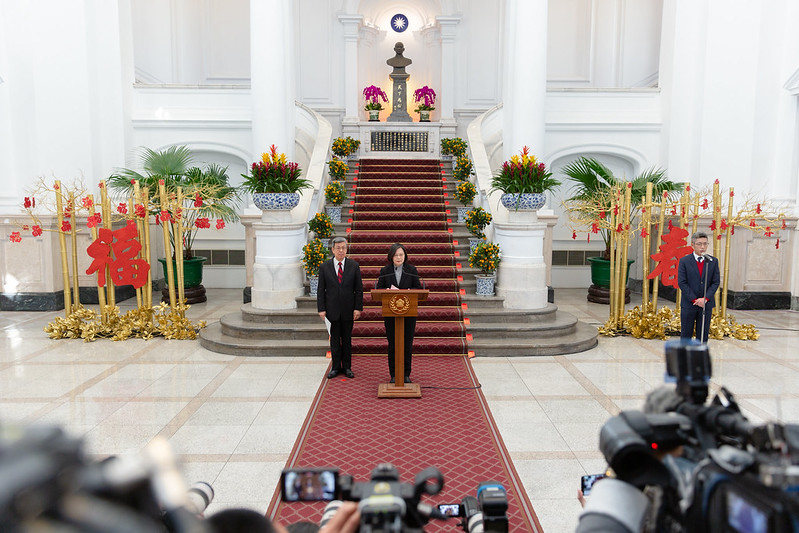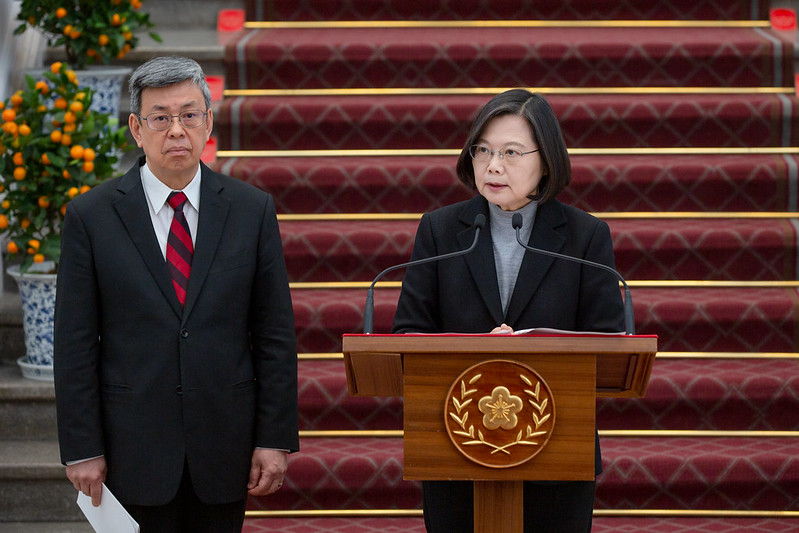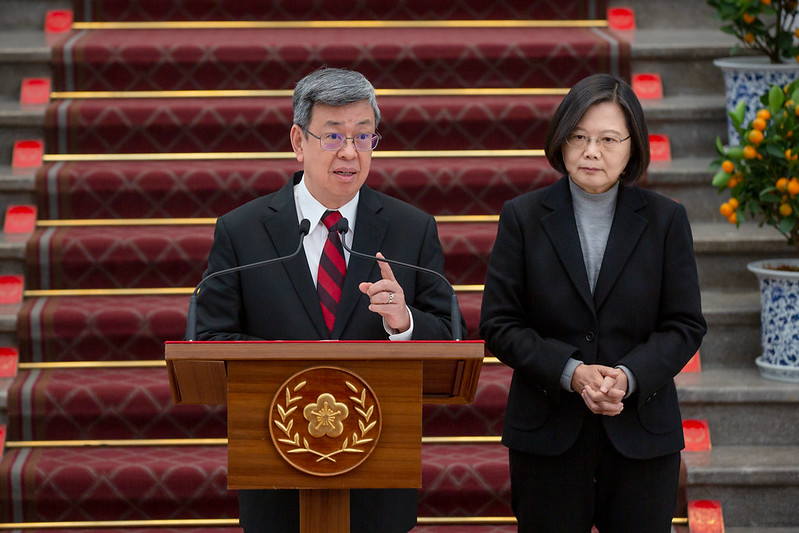News & activities
 News releases
News releases
On the afternoon of January 30, President Tsai Ing-wen, accompanied by Vice President Chen Chien-jen, issued remarks in the Entrance Hall of the Presidential Office Building regarding possible impacts that the novel coronavirus outbreak in Wuhan, China might have on Taiwan's economy, as well as the response measures the government has drafted. After issuing remarks, President Tsai then took questions from the media.
A translation of the president's remarks follows:
First, I would like to say to our colleagues on the front line of disease prevention: "Thank you for your efforts."
The seven-day Lunar New Year holiday is a time for families to gather together. But many of our colleagues did not have a holiday, or even a break, because they were on duty 24 hours a day to closely monitor the situation and protect the health of Taiwan citizens.
Working around the clock, through their concerted efforts, the coronavirus outbreak is currently under control. Seven people now in Taiwan were infected while abroad, and one person was infected at home (The Central Epidemic Command Center announced an additional case later in the evening, bringing the total to two.). There has been no community outbreak. This is the result of close cooperation, so on behalf of my fellow citizens, I would like to thank all of you.
I also want to report that earlier today, we held a high-level national security meeting and thoroughly discussed how to keep abreast of outbreak developments and prevention work. We then discussed the outbreak's possible impact on Taiwan's economy and drafted advance response measures.
In response to issues the public has recently been concerned about, we directed all government agencies to respond as follows:
First, we must continue to enforce entry management. February will still be a "high alert" period for the coronavirus outbreak, and we will continue to strictly monitor travelers with a history of travel to China and enforce stringent requirements for truthful declarations upon entry to Taiwan, as well as rigorous follow-up. Travelers with a history of travel to Hubei will be subject to home quarantine for 14 days to prevent a possible outbreak.
Second, we will step up monitoring and control of the movement of goods. Everyone is particularly concerned about the availability of face masks. Now that the Lunar New Year holidays have come to an end, domestic production of face masks is gradually starting back up again, and output will increase to 4.2 million masks per day, which means that supply should gradually return to normal. Related government agencies will exercise "centralized procurement, centralized distribution, and centralized pricing" while tracking production and inventories to ensure dependable domestic supplies. We ask that our fellow citizens refrain from making mass purchases out of fear, and we will implement stringent measures to prevent people from hoarding masks and driving up prices.
Third, providing accurate information on how to guard against infection will be a key focal point of our work. I have asked our Central Epidemic Command Center to draft a set of disease control guidelines and effectively communicate these guidelines to the general public so that people will understand, among other things, how to manage their own health and prevent the spread of disease in different workplace environments. We want citizens to be able to lead normal lives while being vigilant against the spread of disease. I also want to ask relevant government agencies to devise methods and approaches similar to those we used during the SARS outbreak years ago. When necessary for the sake of disease control, we will use commercial broadcasting frequencies at specific time slots to provide the general public with clear and accurate information on the outbreak. I also want to remind my fellow citizens once again not to spread untrue or unverified information.
Fourth, the central and local governments must work in tandem to prevent the spread of the coronavirus. I hope all local governments will actively support the central government’s policies, and our central government and local disease control systems must be better coordinated. For this reason, I have asked the Executive Yuan to call liaison meetings with county and municipality disease control officials to ensure that everyone involved is operating on the same page.
As for the economic impact of the outbreak, I have instructed relevant agencies to take the following measures:
1. Stabilize stock and foreign exchange markets, in order to reduce the impact of short-term psychological factors.
2. Oversee the disease control efforts of companies, in order to ensure that production and marketing channels remain unaffected.
Third, we must initiate bailout measures for impacted industries, particularly the transportation, tourism, and leisure industries, and assist in their industrial transformation and upgrading.
Fourth, I ask that the Tourism Bureau under the Ministry of Transportation and Communications explore providing partial subsidies for losses incurred by tour operators that have sent tour groups from China back early in accordance with our current policies.
Fifth, we must explore measures we can take to support stores, department stores, and retailers that have been doubly impacted by the coronavirus outbreak and its subsequent effects on online purchases.
Sixth, we must ensure domestic investments are realized. In particular, we must accelerate public investment and prevent private investment from slowing.
Seventh, I ask that the Ministry of Economic Affairs remind industries of the need to adjust production lines and global market supply and demand outlooks, and assist them in this process in order to mitigate the impacts of the coronavirus outbreak. At the same time, we must continue to help Taiwanese firms return to Taiwan and seize opportunities to take on transferred orders.
Eighth, I ask that the Executive Yuan take into consideration any changes in the coronavirus outbreak when assessing the necessity for special laws and budgets, and plan these out in advance in the event that they are needed.
We are also deeply concerned about Taiwanese citizens still stranded in Wuhan, China, and we hope that they will receive proper care. We are maintaining communication through both the Straits Exchange Foundation and overseas Taiwanese business organizations and providing assistance for both their daily life and medical needs. We will continue to communicate through all channels in the hopes of bringing our citizens home, particularly the elderly, children, those with chronic illnesses, and those on short-term business or tourist visits to Wuhan. Our government will be fully prepared, and if we are able to bring them back to Taiwan, we will implement proper placement and quarantine measures with prevention of the spread of the virus as our first priority.
Our government views preventing the spread of the coronavirus with the same gravity as a battle, and we will ensure that ample medical and disease prevention resources are available domestically, so that we can give our all to disease prevention work. In light of humanitarian considerations, we would also like to express our concern and condolences to citizens in China who have been affected by the coronavirus outbreak, and we are willing to provide necessary assistance where we are able.
I particularly want to thank countries such as the United States, Japan, and Canada for publicly supporting Taiwan's inclusion in the World Health Organization (WHO). We are also grateful to our friends in the international community who have recently spoken up for and supported Taiwan's participation in the WHO. Like all other countries, Taiwan is currently facing the risk from this global pandemic. We have the capability and the responsibility to do our part for the international community, and we hope that the WHO will not exclude Taiwan for political reasons. The WHO must make room for Taiwan's participation.
Afterwards, President Tsai fielded questions from the media. In response to a question regarding Japanese Prime Minister Shinzo Abe and Canadian Prime Minister Justin Trudeau speaking up for Taiwan for the first time and supporting Taiwan's inclusion in the WHO, President Tsai stated that the coronavirus outbreak in Wuhan, China has clearly shown the world how important Taiwan is to disease prevention efforts, as well as the Taiwanese people's demands for their own health. Thus, she said, she was grateful to major countries such as the United States, Japan, and Canada for publicly supporting Taiwan's inclusion in the WHO. Their support is a major encouragement to us, she said, and she also thanked all the countries that have voiced their support for Taiwan's participation in the WHO recently.
The president further stated that the coronavirus outbreak in Wuhan has shown us that Taiwan is indeed on the frontlines of disease prevention, and we thus have a strong need to participate in the WHO so that we can do our part as the first line of defense and ensure the Taiwanese people's health.

